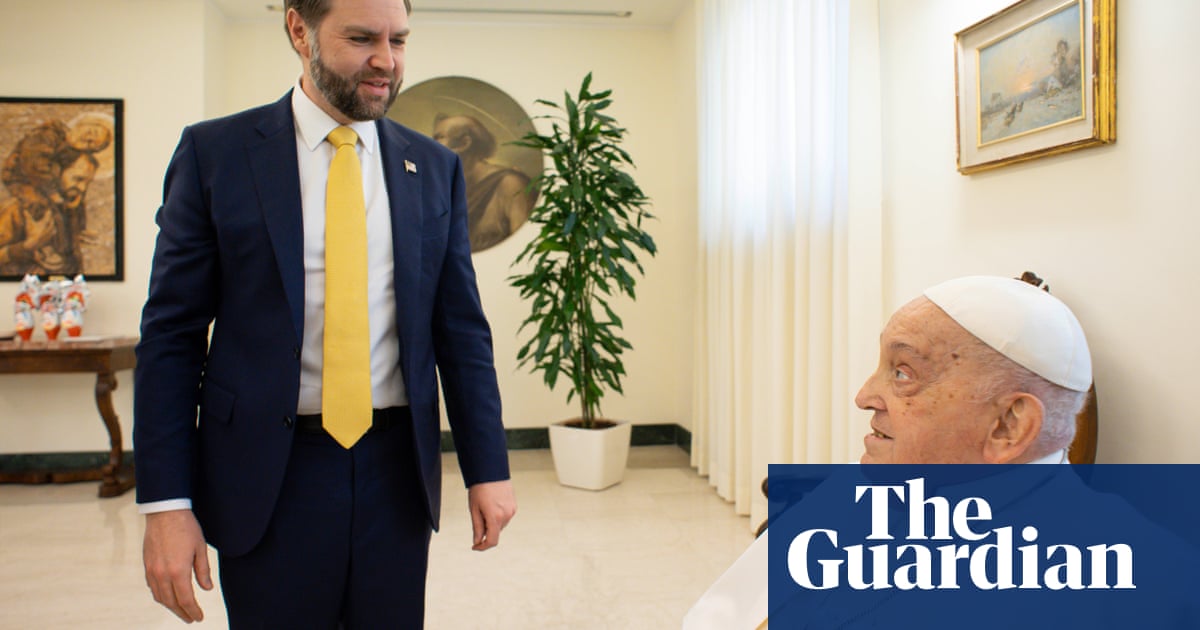A tenured law professor at Columbia University who advocated for pro-Palestinian students on campus says she was in effect forced out of the university, citing a “toxic and hostile environment for legitimate debate around the war in Israel and Palestine”.
Katherine Franke announced on Friday that she had reached an agreement with Columbia University that relieved her of her “obligations to teach or participate in faculty governance” after serving on the Columbia law faculty for 25 years.
“While the university may call this change in my status ‘retirement’, it should be more accurately understood as a termination dressed up in more palatable terms,” she said.
A spokesperson for Columbia University said in a statement to the Guardian that Columbia was “committed to being a community that is welcoming to all and our policies prohibit discrimination and harassment”.
“As made public by parties in this matter, a complaint was filed alleging discriminatory harassment in violation of our policies. An investigation was conducted, and a finding was issued,” the spokesperson added. “As we have consistently stated, the University is committed to addressing all forms of discrimination consistent with our policies.”
Franke was investigated by Columbia University after complaints were made over comments she made on a Democracy Now! radio program in January 2024.
In the radio program, Franke discussed an incident that took place on campus that month, which involved reports of a foul-smelling substance being released on pro-Palestinian protesters during a rally on campus. It was reported at the time that several students were hospitalized.
A student who was identified as a former member of the Israel Defense Forces was suspended in connection with the incident. (The student later sued the university and has since reached a settlement.)
In the radio interview, Franke said that she and others were concerned about Israeli students coming to Columbia “right out of their military service” and that “they’ve been known to harass Palestinian and other students on our campus”.
“And it’s something the university has not taken seriously in the past,” she added.
Following her remarks, two colleagues at Columbia filed a complaint with the university’s office of equal employment and affirmative action, claiming her comments amounted to harassment of Israeli members of the Columbia community in violation of university policies.
During an April congressional hearing, the then president of Columbia University, Minouche Shafik, was questioned by the New York Republican representative Elise Stefanik about Franke’s comments and whether disciplinary actions had been taken against her.
During the questioning, Stefanik misquoted Franke, claiming she said: “All Israeli students who served in the IDF are dangerous and shouldn’t be on campus.”
Shafik responded: “I agree that those comments are completely unacceptable and discriminatory.”
after newsletter promotion
In Franke’s statement on Friday, she claimed that Shafik, who resigned several months after the hearing, knew that Stefanik’s summary was inaccurate but made “no effort to correct the congresswoman’s deliberate mischaracterization of my comments”.
In November, an external investigation determined that Franke’s comments on the radio program violated Columbia’s equal opportunity and affirmative action policies. According to the New York Times, the investigation also found that she violated policy by disclosing the name of one of the complainants, and by reposting a post on social media that contained disparaging remarks about that individual.
Franke filed an appeal, she said in her statement, but ultimately came to the conclusion she could not stay at Columbia.
“Upon reflection, it became clear to me that Columbia had become such a hostile environment, that I could no longer serve as an active member of the faculty,” Franke said on Friday.
She added that she had “long had a concern that the transition from the mindset required of a soldier to that of a student could be a difficult one for some people, and that the university needed to do more to protect the safety of all members of our community”.
Franke said that since the hearing, she had regularly received violent threats over email and at her home, along with hostility from colleagues and students.
Franke is one of number of professors around the country who continue to face disciplinary measures for their support of the pro-Palestinian protests that rocked US campuses last year.
“I have also come to regard Columbia University as having lost its commitment to its unique and important mission,” Franke said. “Rather than defend the role of a university in a democracy, in fostering critical debate, research, and learning around matters of vital public concern, and in educating the next generation with the tools to become engaged citizens, Columbia University’s leadership has demonstrated a willingness to collaborate with the very enemies of our academic mission.”

 3 months ago
71
3 months ago
71













































